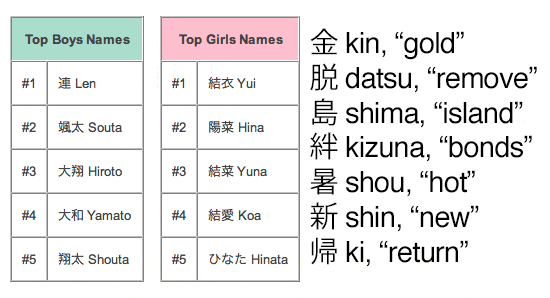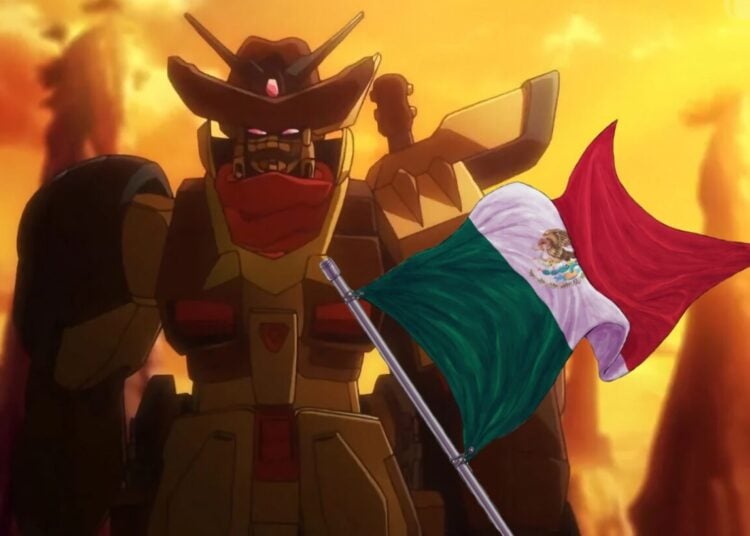When Japanese couples get ready to have a child, they naturally start making lists of possible baby names. While most names are based on kanji characters — and just as there are a dozen variations on the spellings of names like Jason or Ashley, there are different kanji characters parents can choose from — it’s perfectly okay to keep it simple and choose a name in hiragana. When it was time for our kids to be born, we made sure to consult our family’s Buddhist priest to make sure the name we were considering didn’t have bad omens attached to it (for example, names with animal kanji in them were a bad idea, we were told). My wife also made sure to choose a name for our daughter that had the same number of strokes (written lines) as her own name, so her “strong luck” would pass to her daughter. The list of this year’s most popular names for babies in Japan was recently released, so I’ve posted it below. The most popular boy’s name was Len, the same as the popular Vocaloid character, and anime fans probably won’t be surprised to see that the most popular name for girls right now is Yui, as it seems every other anime has a character with that name these days.

Speaking of kanji, today (December 12) is kanji-no-hi, or Kanji Day. Each year the organization that publishes the Standardized Kanji Test (and the kanji practice tools for the Nintendo DS) announces the “kanji of the year,” the single character that best sums up the events of the past twelve months. The character is announced at a ceremony at the beautiful Kiyomizu-dera temple in Kyoto, where the head Buddhist priest writes the character on a large sheet of paper while everyone watches. The character for 2012 has been announced, and it’s…kin, meaning “gold,” a word that summed up the year thanks the gold medals Japan won at the London Olympics, the recent award of a Nobel Prize to Shinya Yamanaka for cellular research, the the financial popularity of the newly opened Tokyo Sky Tree, and just maybe, the release of Persona 4 The Golden. I personally would have gone with datsu “to remove” to reflect the efforts of many Japanese to end nuclear power in Japan (called datsu genpatsu), or perhaps shima (island), since so much trouble was caused over disputes with China and South Korea over silly islands that no one would want if the other side didn’t claim it also. Last year’s kanji of the year was kizuna, meaning “bonds,” which describes the precious bonds that tie us all to one another, which were sorely tested when Japan experienced an unprecedented 9.0 magnitude earthquake and tsunamis. Kanji for previous years have included sho, “hot” in 2010, a year when many died from the unusually hot summer; shin, “new” in 2009, a year of renewal; and ki “return” in 2002, to mark the return of five Japanese who had been kidnapped by North Korea.














